|
Have you heard all of the competitive buzz around the school about Music Ball? Yep, it's that time of the year!! I get super excited and pumped up about music ball- and this year is no different!!
This year, each teacher picked different "food" team names and we are having a blast with it!! We even have a teacher combined team for the adult students who I'm secretly rooting for! How awesome would that be for the adult team to win?!?! At each student's lesson, we give points based on their theory work completed, practice days, and their attitude and posture in the lesson. Then, those points are added to a score sheet where the team gets an average. The team with the highest average for the week wins the game. We will compete for 7 weeks. At that point, the teams with the highest number of wins will be the winners. This year, we are giving prizes to our 1st, 2nd, and 3rd place teams in each division. In addition, each team will have a Top Team Player- the player who has the highest average. All Top Team Players and 1st place teams will be invited to a lock in at Music SO Simple where we will get to watch a movie, play music games, eat pizza, and just have fun! This date will be announced later! Check out the current stats here!
0 Comments
I've been hearing from parents lately about their child not really getting into practice and if I have suggestions. I do!!
#1: Try and make practice part of the schedule. It could be the same time each day or just part of the daily flow. Do you usually eat dinner around the same time each night? When whoever is cooking, maybe that's the time to remind your student to go practice! Or, maybe it's in the middle of homework and your student needs a break. Physically get up from homework (at the proper stopping point) and switching that part of the brain off to work on practice helps tremendously. Not only will practice be a welcome thought, but also when practice is done, your student will be ready and fresh again for homework! If your evenings are crazy, how about practice first thing in the morning before jetting off to school? #2: Remember WHY you are doing this! Why do you feel music is good for your student? If there's no practice (or very little) your student is going to get discouraged. Keep the momentum going at the beginning establishes that habit of practice. Even if it's only for 5 minutes. I often think getting TO the instrument is the hardest part. It's kind of like working out, once you get to your mat or to the gym, you feel better working out! Just get to your instrument- make the effort, and the rewards will show themselves. #3: Need a little incentive? This is part of the reason we begin Music Ball when we do!! (we are kinda smart sometimes). We like to wait a few weeks in and then throw in the super fun, competitive game of Music Ball. Students are put on teams according to their teacher and then we "play" against each other. Honestly, all you will have to say at home is "How's your team doing?", "Make sure you mark your practice so your teacher can see it!" , and I promise your student might go running to their instrument!! Then, check out the weekly newsletter each week- save the URL for Music Ball (only available to students) and check in on it at the beginning of each week. Viola! You're golden! Bonus point for not even saying "go practice!". Borrowed from an online group- these are absolutely the best things about teaching music to our children!
"One of my friends asked "Why do you pay so much money for your kid to play the piano”? Well I have a confession to make; I don't pay for my kid to play the piano. Personally, I couldn't care less about what instrument they play. So, what am I paying for?
I could go on but, to be short, I don't pay for piano playing; I pay for the opportunities that learning to play provides my kid with to develop attributes that will serve her well throughout her life and give her the opportunity to bless the lives of others. From what I have seen so far I think it is a great investment!" -Stathia Orwig So, you've got your child in music lessons and now, you've got to figure out practice. Why? Well, they can't learn to play an instrument only by attending lessons. Practice is a must. I know, it's hard to fit in. I get it. I struggle with my kids every day, every week, and they are older! So, here are some pointers on how to get in practice.
Once practice becomes part of the schedule, then it just gets easier and even more fun! Of course, we as teachers are always rewarding our students for practice with music bucks, contests, music ball, and honor roll. But the real fun, honestly, comes when they are confident & learning more repertoire! For more fun practice pointers, check out an past blog from the Old Pro.
Happy practicing!! Let us know what works for you! -Meredith Manley This week, I wanted to talk about parents sitting in during lesson time. Some teachers may have a strong preference about whether or not parents should attend their child’s weekly lesson, while others believe it is more situational. I came up with a good list of pros and cons for both group class settings and private lessons. Let’s talk about parents and group classes first. At MSS, we have two early childhood classes: Treblemakers (ages 6 months to 3 years) and Merry Musicians (3-5 years). Our Treblemakers class is designed for parents and children to make music together, so of course we want the parents in class! Around age 3, students transition into our Merry Musicians preschool class without parents. Some children at this age experience separation anxiety (usually because they have never been to a class without parents before), so we understand that they may feel a little anxious. Even if the child is nervous or upset about being separated, the important thing is for parents to not join class or be visible from the classroom window. When a parent joins the class, the child remains dependent, which can hinder their learning and socialization with the other children. It’s also distracting to the other students, and oftentimes they feel as if they can’t be themselves, so the group dynamic is compromised. If you are worried that your child cannot be without you in class, that is probably a sign that they are not quite ready yet to join, so it’s best to wait a few months! There is more gray area when it comes to parents attending private lessons. Some teachers prefer having parents attend lessons for the first year so that they are able to fully support their children at home. Parents have the opportunity to ask the teacher questions on the spot and learn what is expected (for parents do’s and don’ts during lessons, check out this article). Other teachers prefer to have families sit outside of the lesson, but reserve the last 5 minutes of class to go over the lesson with the parent. What’s nice about our studio space is that each classroom has a large window so that parents can see in at any time if they are asked to sit outside the room. This is a safety feature for both students and teachers that just puts everyone more at ease. As far as student behavior goes, I’ve seen it go both ways: some students have much better behavior when the parent is present, while others have worse behavior and are tempted to talk to the parents too much or seek attention from them. Another potential problem is when a parent and younger sibling both attend the lesson. When extra people are brought in, it just creates more distraction, especially if a parent is trying to keep the sibling entertained.
Like in group classes, the dynamic between teacher and student is sometimes compromised when parents or family attend private lessons. The student may not feel comfortable fully opening up to the teacher if the parent is there, and the teacher may feel as if they are being evaluated. In any scenario, the environment feels different when someone is observing, and it is unlikely that both people will act completely naturally. We’ve talked about how important the relationship between teacher and student is for success and longevity, so time alone between teacher and student during lessons can ensure that the rapport is built properly. Whether or not parents sit in on the lesson is really up to the teacher, and teachers may make different decisions based on each student. If a teacher wishes to be alone with the student during the lesson, it is not something to be taken personally (in fact, I think it’s a great sign that your child is independent and well behaved!) If you’d really like to be in the lessons but your teacher would prefer to be alone, come up with a compromise, like sitting in on a lesson once every 4-6 weeks. The important takeaway is to have an honest conversation with your teacher so that both of you are happy! As a parent, what is your opinion on attending lessons? -Stathia Orwig
One of my new year's resolutions for 2020 was to listen to more podcasts. I usually listen to them in the car after I drop kids off or on my way to get my kids, because they need to talk or listen to music. I love listening to podcasts about business, managing a team, Gretchen Rubin, piano teaching, and piano parenting. I wear lots of different hats and I just can't narrow it down! ;) This week, I was listening to the PianoParentPodcast, the host, Shelly Davis, was talking about how to fit in piano practice for our students. Now, I know we've written blogs about practice and how to practice, but this podcast really hit home with me. As a parent myself, my daughter is on her own most of the time to practice since I'm teaching most evenings. I don't do a whole lot of checking and planning for her, but I have added it to her "responsibility list" to help remind her to practice. As parents, we think just enrolling them for lessons will get the job done. If we can get in a few days of practice here and there, then that's an added bonus! However, I've seen so many students lose interest in their lessons because they are not getting in enough practice. You see, they want to come prepared for lessons! They want to impress their teacher! And when they are not able to do that, then they feel like a failure. As teachers, we get them re-motivated in their lesson and then send them back into their world hoping they will get to practice. Maybe one week is not a big deal, but if they don't get practice in week after week, this is when our students begin to lose interest. We, as parents, have to be intentional about helping our kids get their practice in. That doesn't mean we have to sit right by them, but we do need to say, "Hey, while I'm working on dinner, go get a little time in at the piano". "Or, we have a crazy evening tomorrow, so how about practicing your instrument before school so we get that in." They need our guidance and our help. Practicing is not going to always be first thing on their mind; it's our job. Yeah, I know, sometimes I feel like EVERYTHING is our job, we've gotta do everything, remind everyone, blah, blah, blah. But, I'm starting to come to terms with that. Have you? So, if you have a chance, check out this podcast. It will give you ideas on how to help your child with practice at home. Let's set them up for success the best we can! -Meredith Manley
I came across a blog entitled “10 Biggest Mistakes Parents Make About Music Lessons”, written by Lara Levitan. She compiled a list of potential pitfalls from parents and teachers she works with, so I wanted to share a few of her points. I think it’s common for parents to approach music lessons with the best intentions, but sometimes have the wrong expectations when it comes to learning an instrument! The first mistake is starting formal music study too young: if your little one shows interest in music, this does not mean they are ready to start lessons. Private lessons require attention span, motor abilities, and reading skills that children younger than five are typically not ready for. For a preschooler to concentrate for a full 30 minute lesson is a lot and on top of that, because their minds and fingers are not ready to grasp the concepts, their first impression of learning an instrument is that it will always be a struggle (to get a full idea of all of the skills needed to read music, click here). A better solution for young students is to attend parent/child music classes or a general music class for preschool age children (like our Treblemakers and Merry Musicians classes), and then wait to start lessons until they are around 5 ½ or 6 years old. The next mistake is a big one; not sitting down with your young child during practice time. The truth is that children ages six to nine need practice support from parents to be successful. Some parents feel as though they are not able to help because they know “nothing” about music, but sometimes all the child needs is a quiet presence. If this still seems intimidating, talk with your teacher about things to listen or watch for, or have your child teach you! If they can explain concepts to you, that means they really understand the material. Another consideration is to have your child practice in a “family area” of your home: that way, it’s not isolating for him/her and you can be there for support while doing other tasks around the house. Another misconception about practice is that students are supposed to practice for a certain length of time. Practice should be focused more on achieving the goals that the teacher has established instead of practicing for an hour just for the sake of practicing. This takes the joy out of music making, and oftentimes the child starts to resent the instrument. Many parents also expect their child to always stick with their first instrument. Finding the instrument that is the best fit for the student can make all the difference. A child who studies piano because their older sibling takes lessons and because you already own a piano does not automatically mean that piano is the right instrument for him/her. If you want your child to be a long term musician, be open minded to what instrument is the best fit- even if it’s not what you originally envisioned! The last point is not letting students take lessons just for pure enjoyment. As students grow older, they have more academic demands and other activities to juggle, so it’s usually at this point that they quit lessons. Instead of nagging older students to practice and meet rigorous expectations, maybe all that’s needed is a shift in purpose for the lessons. What if we let older students decide when and how often to practice? I have mixed feelings about this, as I know private lessons are expensive and if you’re not going to practice, isn’t this just a waste of money? On the other hand, older students crave independence, and if they are in charge of what they are playing and when they sit down with their instrument, wouldn’t that make them happier and more likely to play? As long as the parents and teacher are on board as a team, it may be worthwhile to let older students take the reins. As parents, what are some things you’ve learned along the way in your child’s music journey? We are always open to what parents have to say! To read Ms. Levitan’s original article, click here So, as we approach the holiday break and are off for 2 weeks, you might just be wondering what your child should do for practice. We like to make it simple and easy. Honestly, we ALL need a break, so take it! Enjoy the family time and the down time. But don’t completely abandon your instrument. Here are some ideas:
Enjoy your break and we will see you ready to hit the ground running!! Merry Christmas and Happy 2017! -Meredith Manley A lot of people ask me what age should their child start learning about music, and their guess is usually around age 4 or 5. While this might be a great age to begin studying an instrument in private lessons, there is a lot of learning that needs to happen before then. The real “window of opportunity” for music learning is from birth to age 5. How do you get a child ready for private lessons when they are so young? The answer is through music immersion, or exposure to a rich musical environment. As a certified Music Together teacher, I firmly believe that attending music class should start before their first birthday. As a parent, you simply have to provide your child with this environment. Although babies are in “receptive mode”, they observe and absorb sensory experiences and respond to music in different ways. Outward responses become more advanced as the child grows older. I love to share this story of a family who attended my Music Together classes for years in Chicago. Abigail was only 6 months old when she started coming to my class, and she eventually completed the 3 year curriculum. Once you finish the curriculum, you start again with the first collection of songs. When we returned to the songs from when she was just an infant, she sang every word of every song in the collection IN TUNE. Her parents were amazed; I think they finally believed me after all of the times I told them that she is learning even though she cannot outwardly “participate”. A relatable comparison is language development; you have to expose your child to elements of speech (talking to your child, reading books, singing, etc.) in order for them to develop it.
So what exactly are the skills that are gained from music class that will help prepare for private lessons? The two main things are a sense of steady beat and tonality. Within the first lesson, I can see if a student has a good “internal metronome”- can they play a piece with a steady beat, or do they slow down and speed up at different parts? Developing the internal metronome is a big focus in early childhood music classes, and it is primarily achieved through movement and instrument play. Tonality in layman’s terms is the structure, order, and spacing of pitches. A child who has been training his/her ear in music classes for a few years will be able to sing “in tune” and display a beginning understanding of pitch spacing. Besides preparing your child for private lessons, music classes also do wondrous things for general development. According to research studies, children who participated in interactive music classes before age 7 have more sophisticated language skills and extensive wiring in the corpus callosum (the nerve bundle that connects the two hemispheres in the brain). Whether or not you have a strong desire for your child to study an instrument, music classes are beneficial for brain development upon which other learning depends on. To learn more about music immersion and the importance of early childhood music, click here To learn more about the stages of music development in children, click here Cancellation policies are one of the most controversial conversations among private music teachers. If you look at the cancellation policies of various studios, you will find some teachers never allow make-ups, some do monthly group lessons, and others always offer make-up lessons. We like to be somewhere in between- it all depends on the circumstances. As a busy mom of two, I understand the craziness of parenthood, but I also know that I do not always have time to make-up every missed lesson, especially if I travel to a student’s home. Our policy allows us to set boundaries yet be flexible at the same time. Our policy reads as follows: attendance Lesson times are permanent for the year and scheduled at a mutually convenient time for the student and teacher. Regular attendance is expected and necessary for progress. cancellations Ultimately, makeup lessons are solely up to the the teacher’s discretion, based on their teaching schedule. Lessons missed by the teacher or due to a school closing will be made up. Refunds are not given for missed lessons. If you have to cancel a lesson, we ask that you give us 24-hour notice. In this case, we do try to schedule a make up; it could be immediate or it might be later in the school year. School holidays, early release days, and holiday breaks are a great time to get in make up lessons if both teacher and student are available. Another option is to split up a make-up lesson and extend the regularly scheduled lessons in the following weeks (i.e. splitting up a 45 min lesson into three 15 minute chunks, then having three 60 minute lessons).
If your child is sick, please let us know!! We all have busy schedules and don’t need to pass the sickness around!! More than likely, we will gladly make-up a lesson to prevent getting sick! If you cancel a lesson with less than 24 hour notice, please do not expect a make-up. If we have a cancellation in our day, we will tell you know. Your child getting in their lessons is very important to us, but we also ask that you respect our busy schedules and personal family life. |
Archives
July 2024
Categories
All
|
|
|
MUSIC SO SIMPLE
|
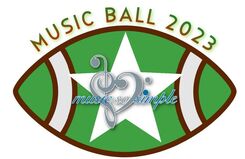
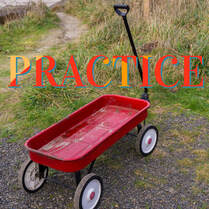
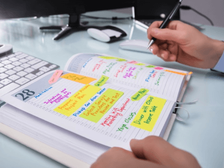
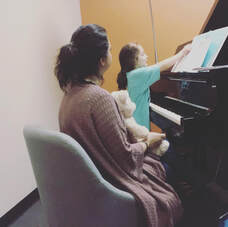

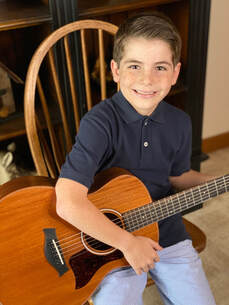
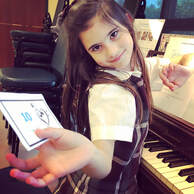
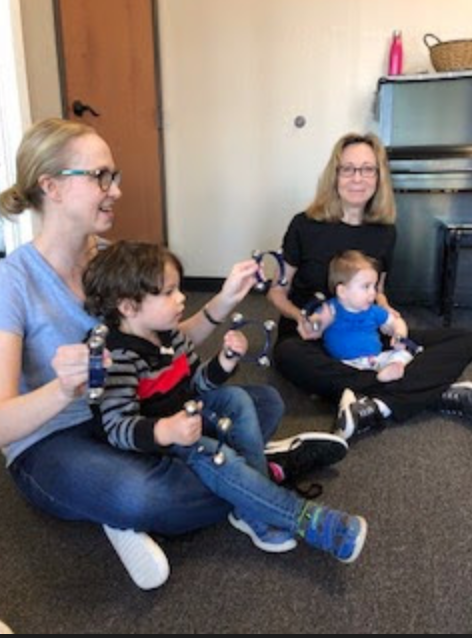
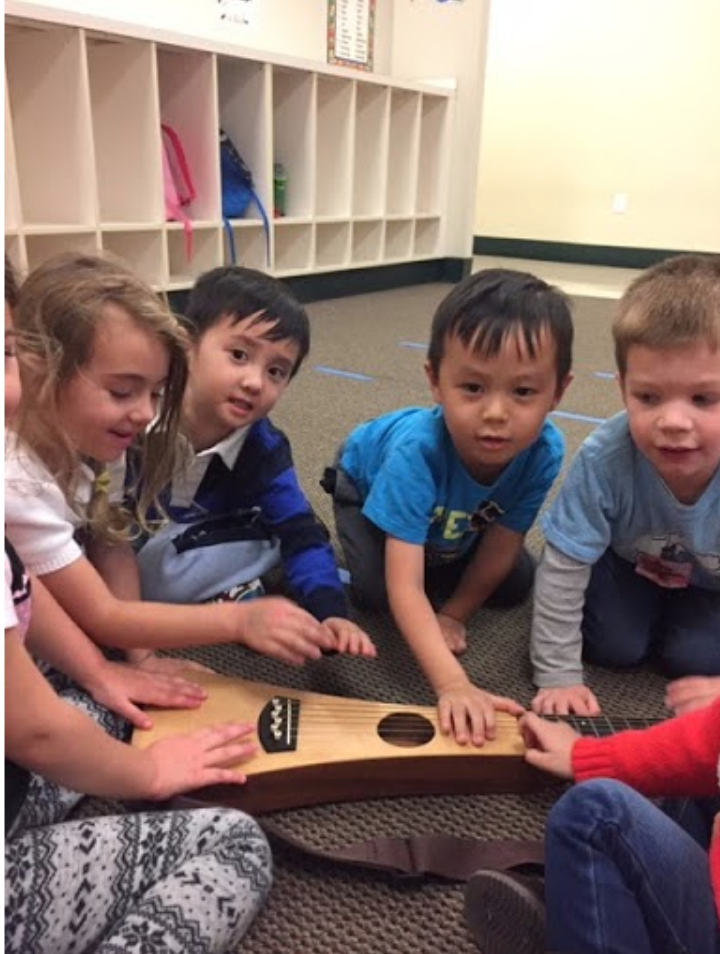
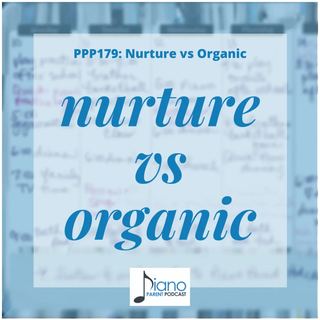

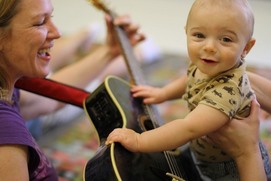
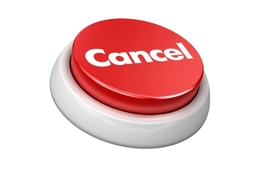
 RSS Feed
RSS Feed